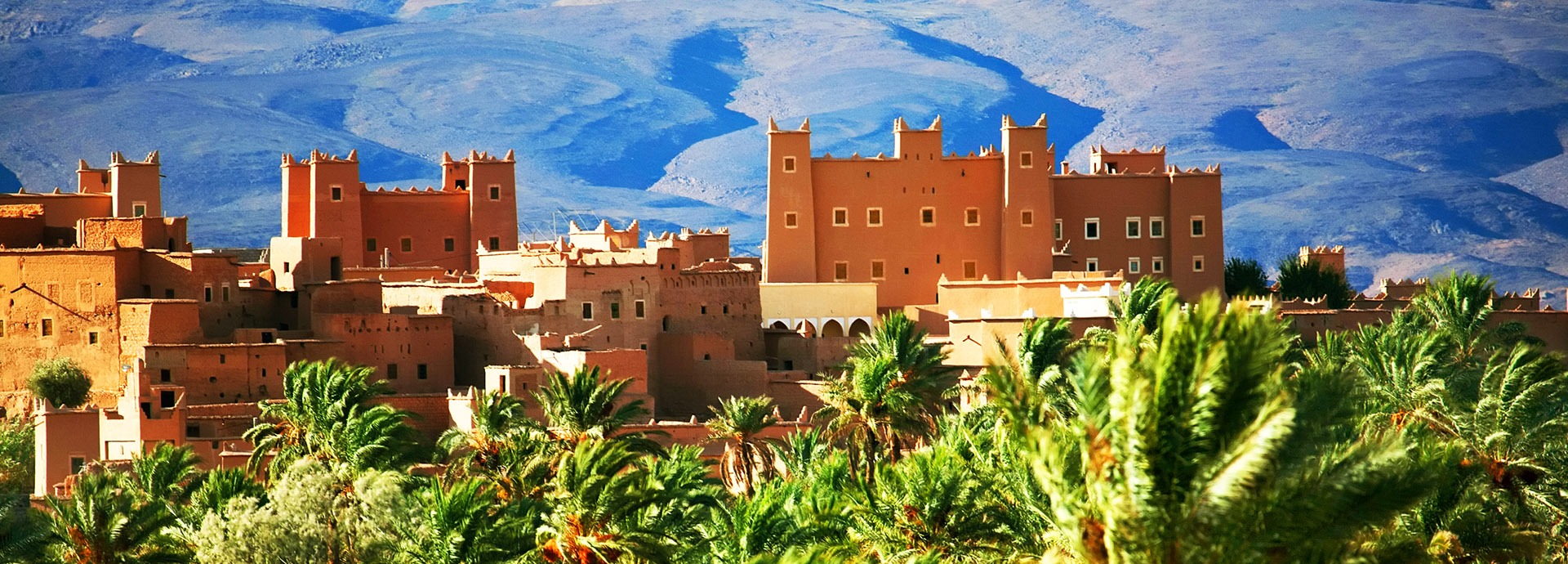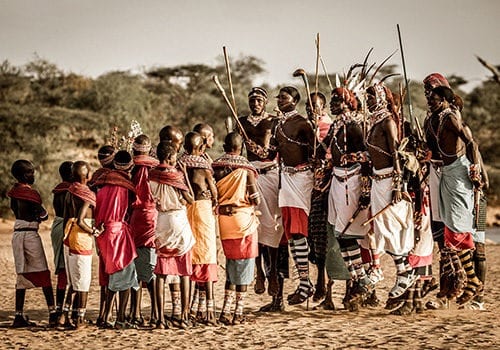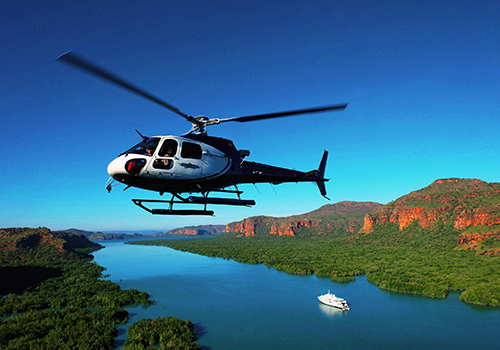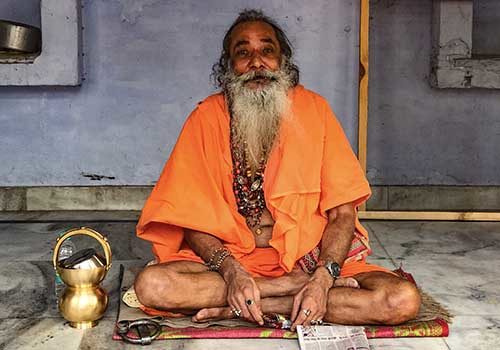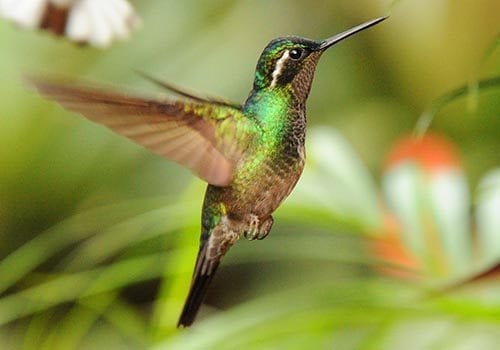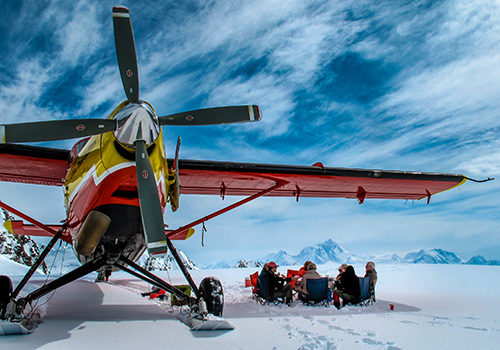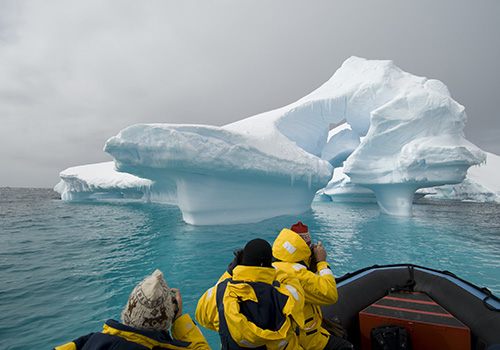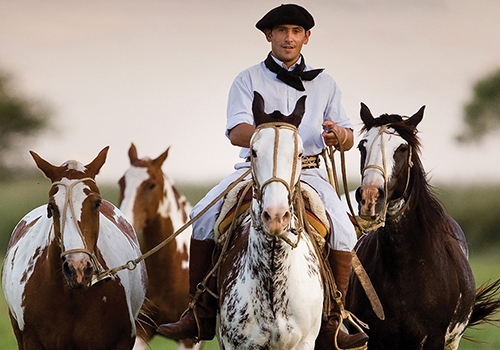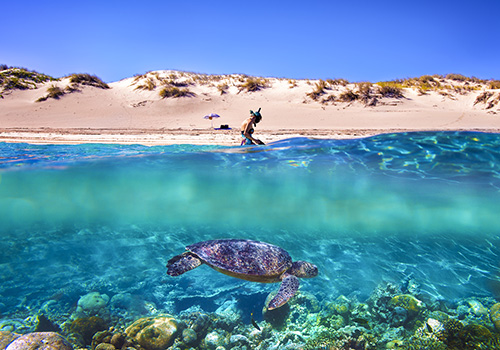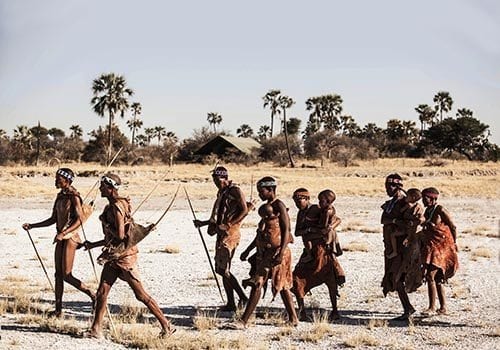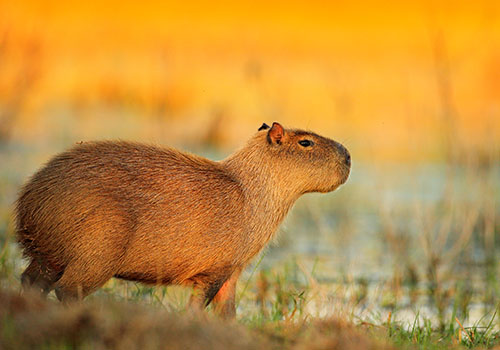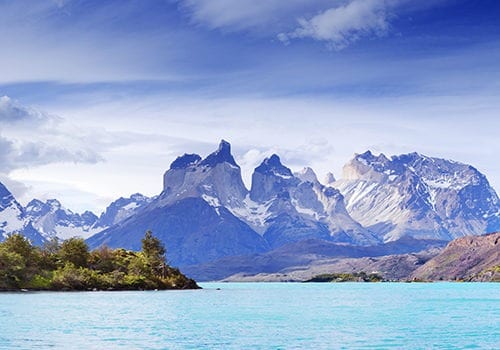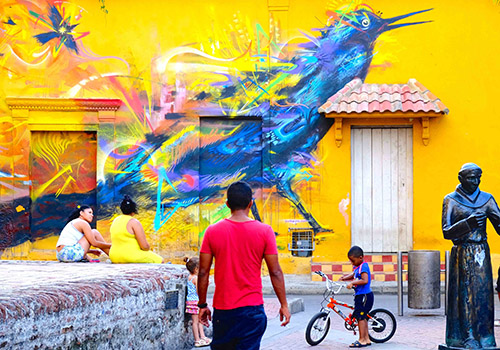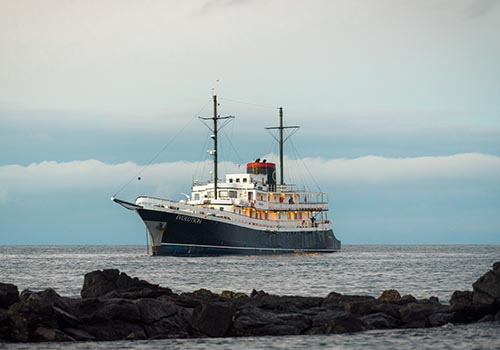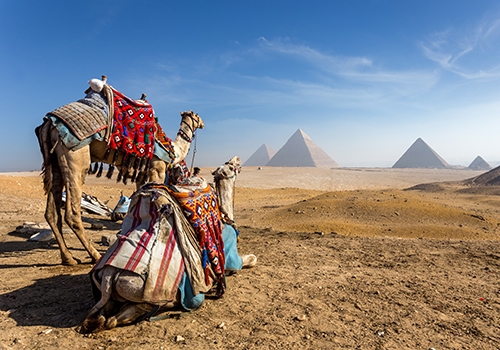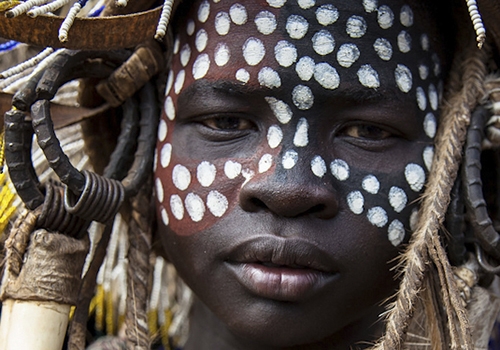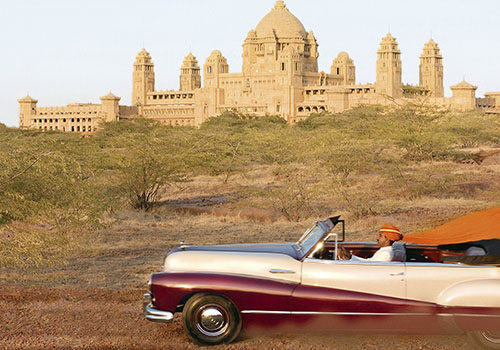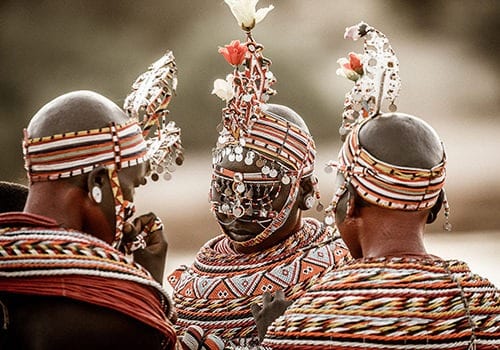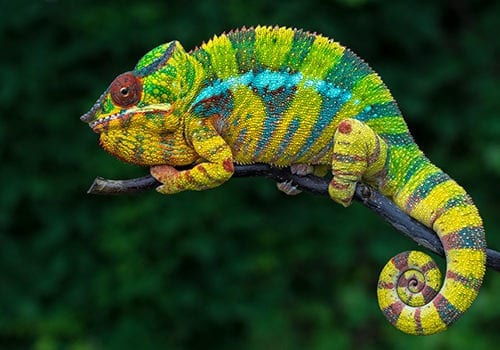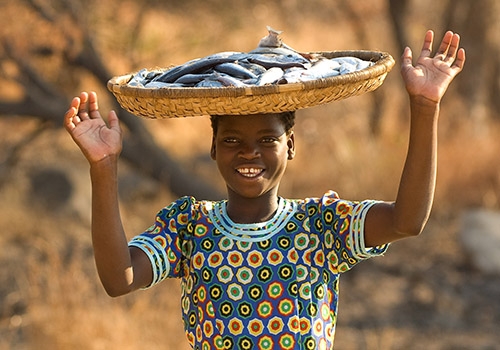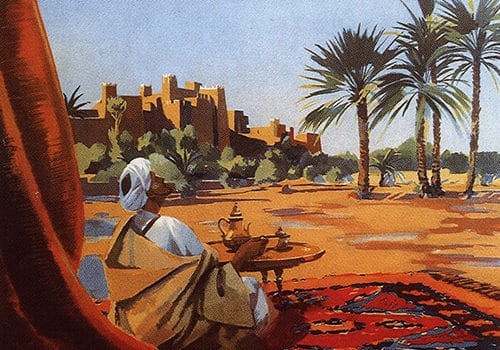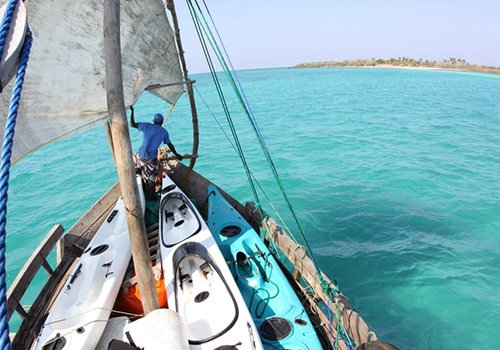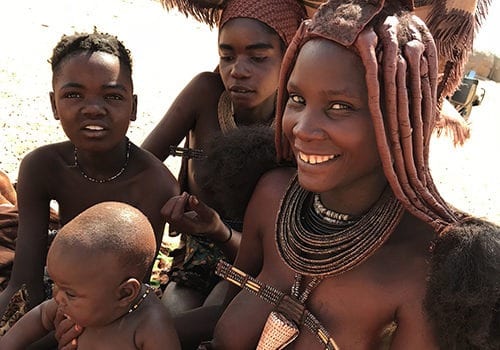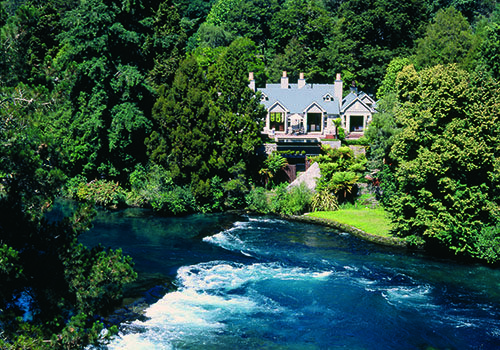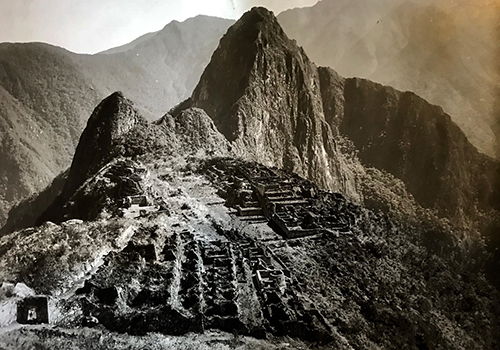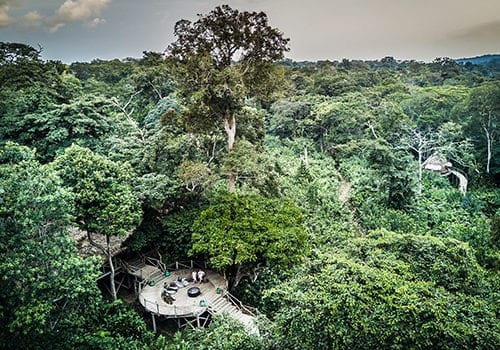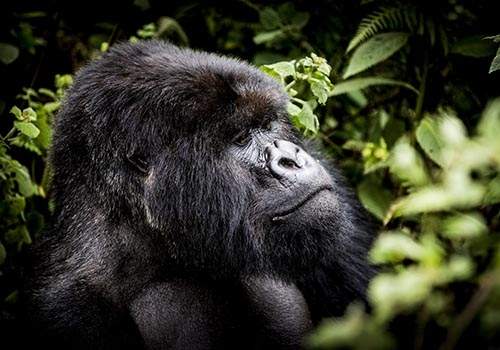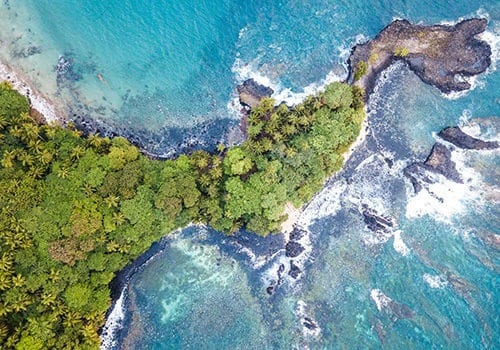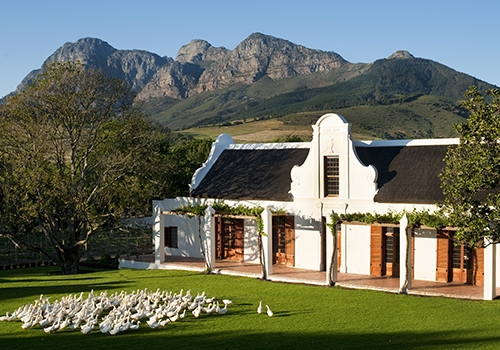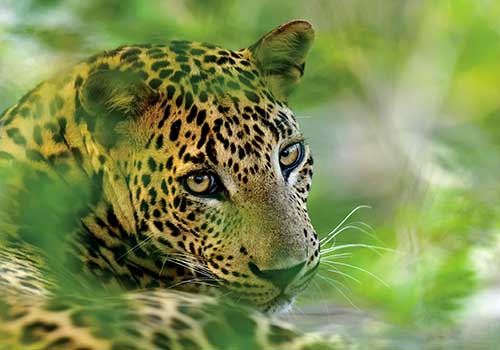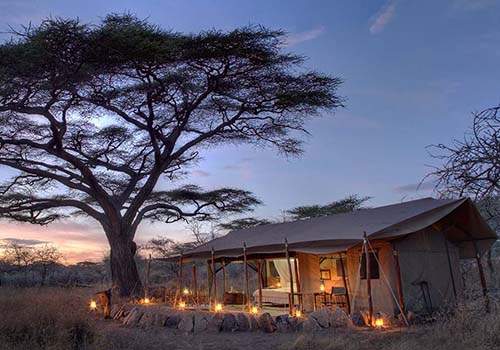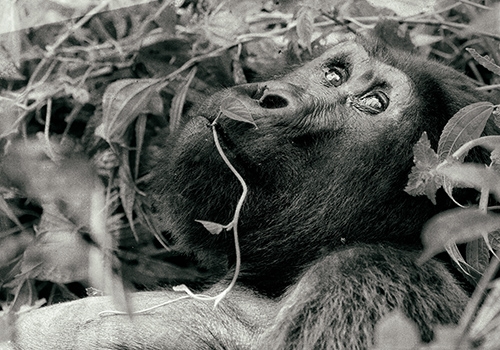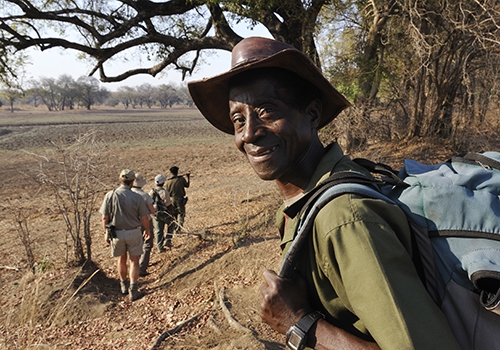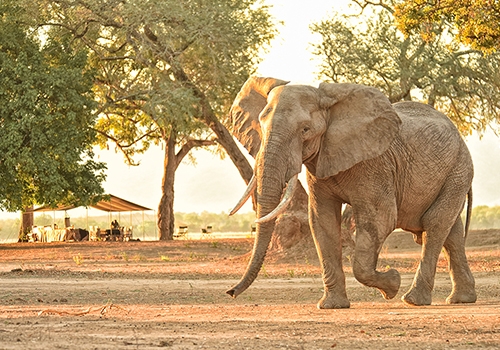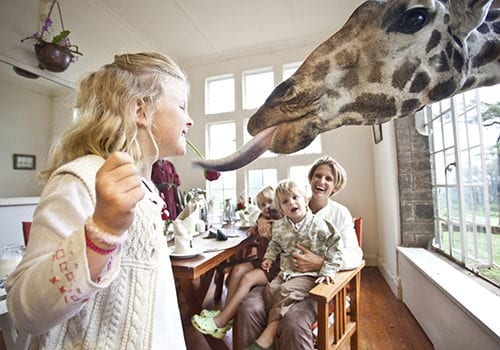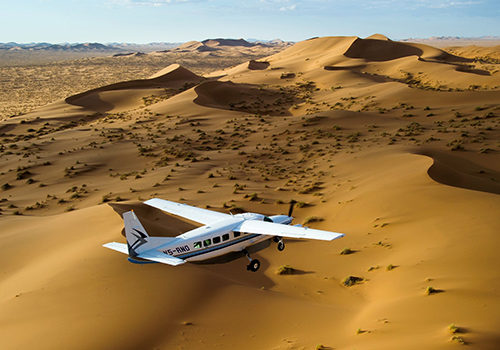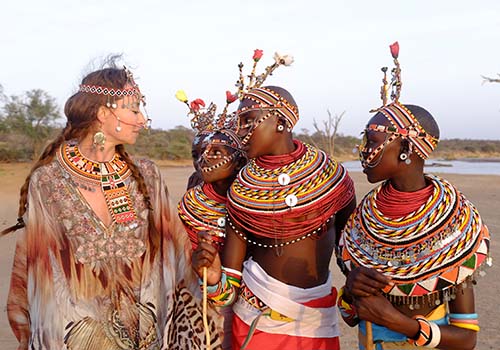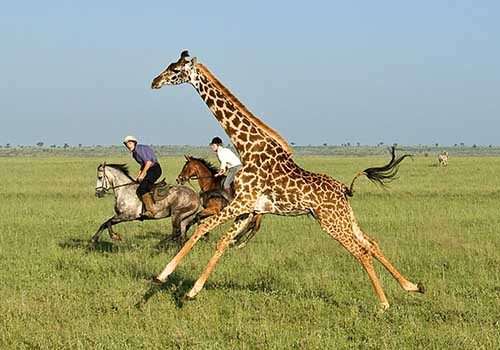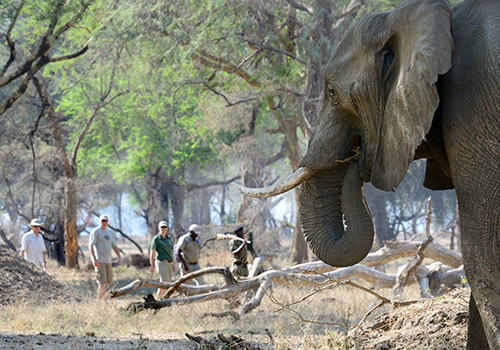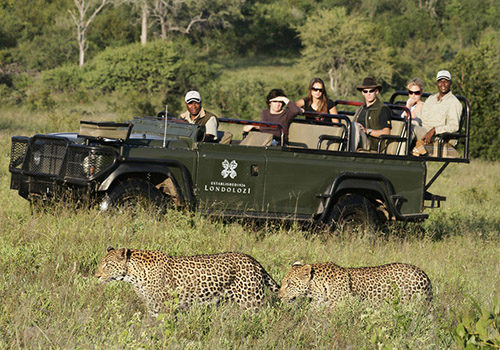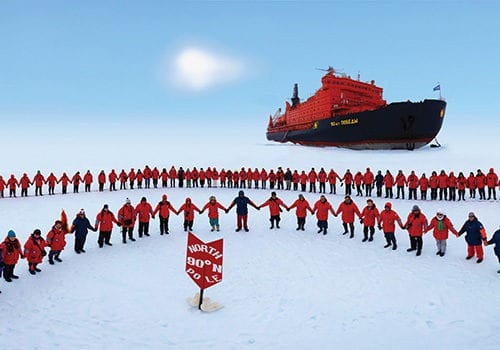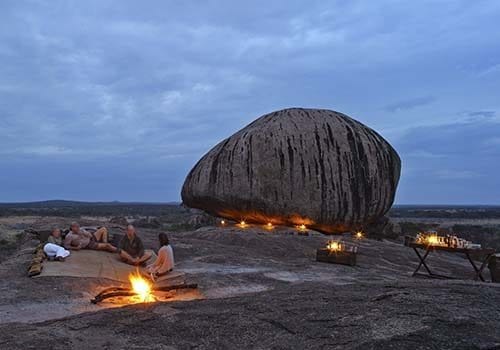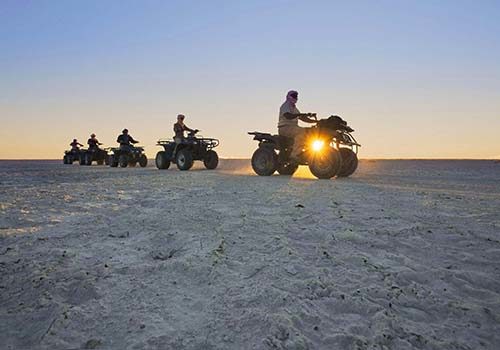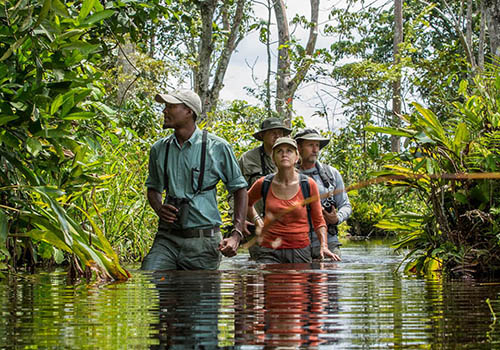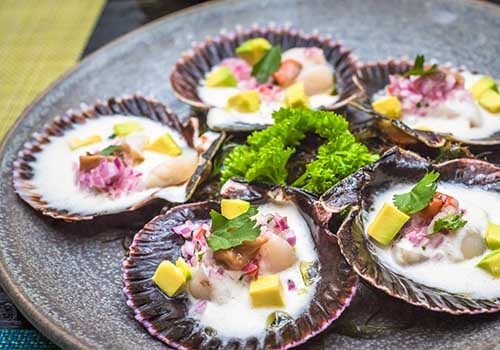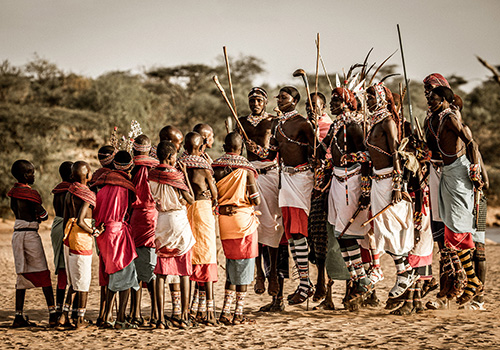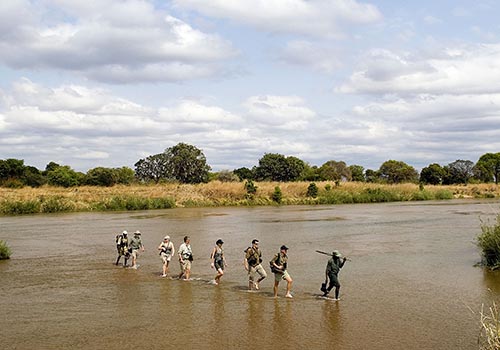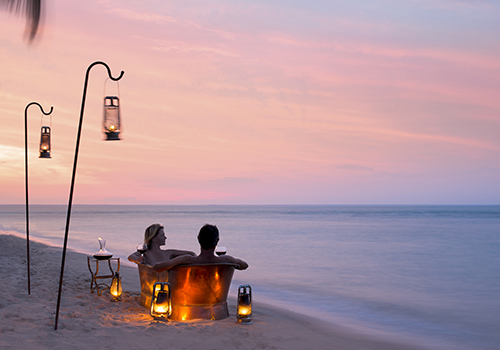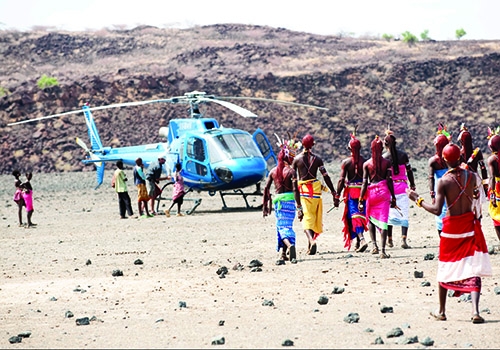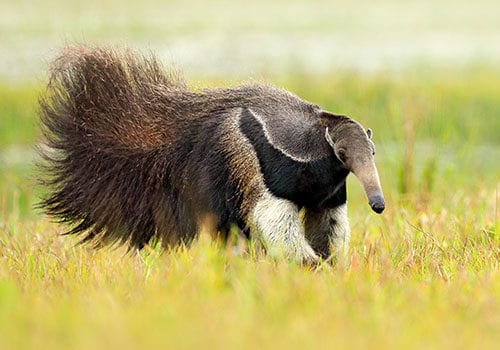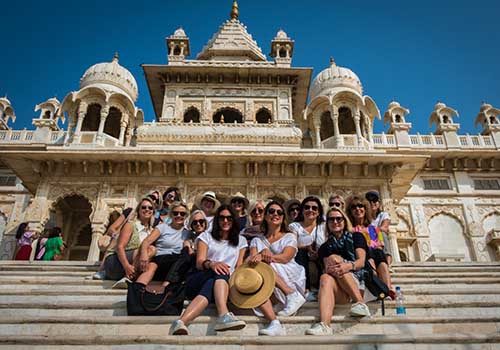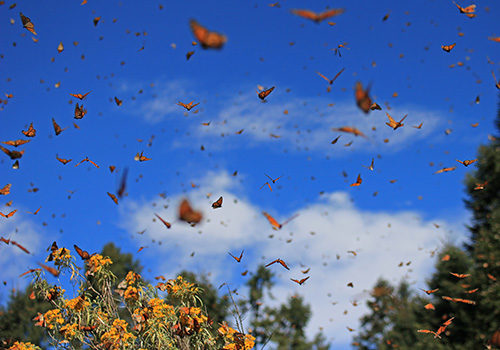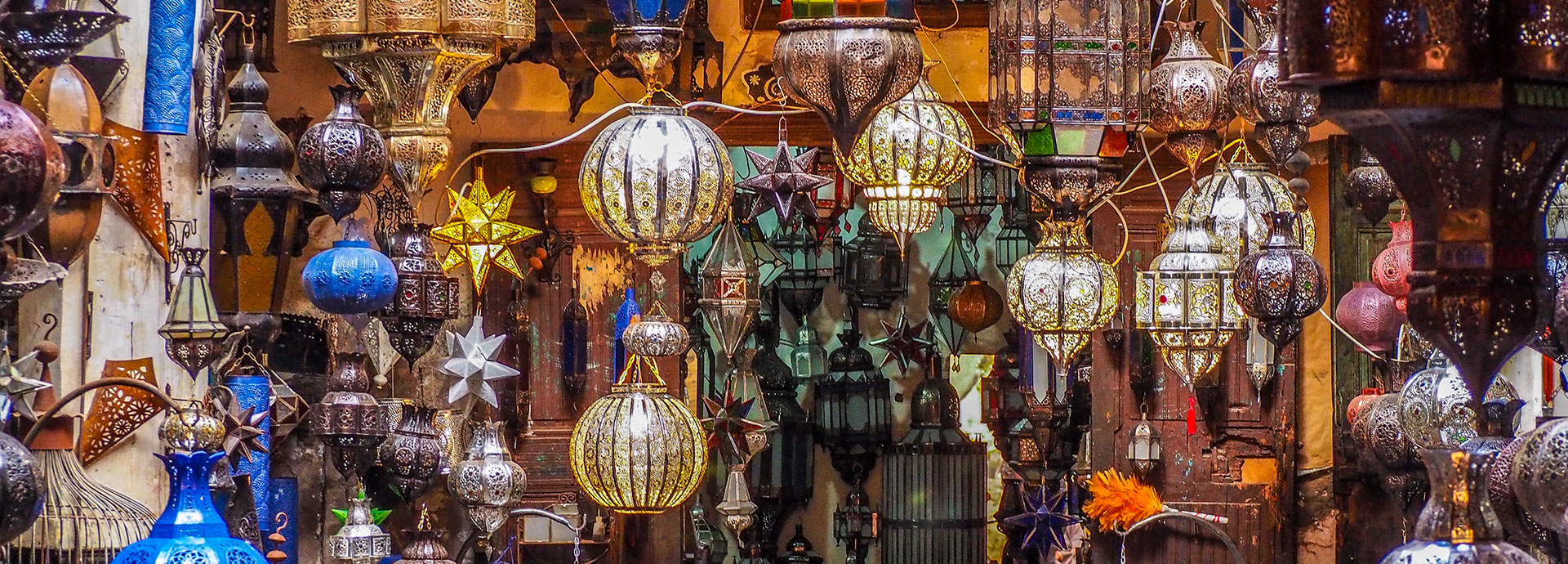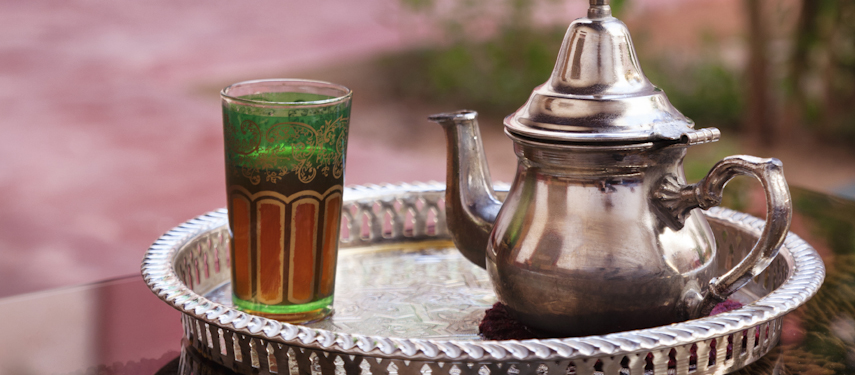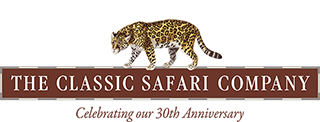
KEY INFORMATION TO PREPARE FOR YOUR JOURNEY
Located in North Africa, Morocco is a captivating country that seamlessly blends rich history with vibrant modernity. Bordered by the Atlantic Ocean and the Mediterranean Sea, Morocco’s diverse landscapes encompass towering mountain ranges, vast deserts, and bustling cities.
Renowned for its intricate architecture, buzzing medinas, and lively souks, Morocco offers a sensory feast for visitors. From the bustling streets of Marrakech with its vibrant markets and historic palaces, to the ancient labyrinthine alleys of Fez, and the breathtaking Sahara Desert that stretches beyond the horizon, Morocco is a tapestry of cultures and landscapes that beckons travellers with its unique charm and allure.
This information will assist in preparing for your departure and includes helpful travel hints for when you are there.
PLEASE NOTE: All pre-departure information was correct at the time of writing, but should be used as a guide only since requirements can change at short notice and without warning. Consult Smart Traveller or contact the Embassy of the Kingdom of Morocco or the appropriate authority prior to departure to confirm all details.
AT A GLANCE
MOROCCO KEY FACTS
Time: GMT +1 hours | AEST -9 hours
Capital: Rabat
International Airport: Casablanca Mohammed V Airport (CMN)
Official languages: Arabic, but English is widely spoken
Religion: The predominant religion of Morocco is Islam, with Sunni Muslims accounting for the majority
Electrical Current: 220V | European 2 round pin – Type C or E
Currency: Moroccan Dirham (MAD)
Australian Embassy in Rabat: 66 Avenue Mehdi Ben Barka, Souissi 10000, Rabat | T: (+212) 5 37 54 33 66 | E: consular.rabat@dfat.gov.au | W: https://morocco.embassy.gov.au/
Visa: No – currently not required for Australian & New Zealand passport holders – refer to ‘Passport and Visa Requirements‘ for further details.
USEFUL WEBSITES
Smart Traveller – https://www.smartraveller.gov.au/destinations/africa/morocco
Travel Doctor-TMVC – https://www.traveldoctor.com.au/destinations/morocco
Embassy of the Kingdom of Morocco – https://www.moroccoinaustralia.com/

RAMADAN
The Islamic holy month of Ramadan is observed in Morocco. Respect religious and cultural customs and laws at this time.
During Ramadan, eating, drinking (including water) and smoking may be illegal in public during the day. If you’re not fasting, avoid these activities around people who are. Seek local advice to avoid offence.
Ramadan is the most important month on the Islamic calendar. It’s the month in which the first verses of the Quran were revealed to the Prophet Muhammad. During Ramadan, Muslims around the world fast from sunrise to sunset.
DATES FOR RAMADAN
The exact dates of Ramadan depend on the sightings of the moon. This can vary from country to country.
2024: 10 March – 9 April*
2025: 28 February – 30 March*
* dates may vary
Eid-ul-Fitr
The end of Ramadan is usually a busy period in Muslim countries. People traditionally visit their families to celebrate Eid-ul-Fitr, the 3-day festival marking the end of the fast.
One or more of these days may be a public holiday.
PASSPORT & VISA REQUIREMENTS
PASSPORTS
Your passport must be valid for at least six months after your return to Australia and have at least two blank pages for every entry and country you intend to visit on your journey. If your passport does not meet these requirements you must obtain a new one. The Australian Passport Office website is www.passports.gov.au.
It is a wise precaution to carry a photocopy of your passport separately and leave a copy at home. This will aid authorities in processing a new passport should yours get stolen or lost.
If you have dual citizenship and more than one passport, we strongly recommend that you use only one of these during your travels, as in some countries it is considered illegal to have two or more passports. Be sure to use the same passport on entry and exit from a country, and never surrender your passport.
If your passport name is different to your commonly used name, advise us of this and ensure your airline reservations match those of your passport name.
VISAS
Australian and New Zealand passport holders currently do not require a Visa to enter Morocco for a period of up to 90 days.
A Public Health Passenger Form is still required, and may be requested by airline staff prior to check-in. You can complete this prior to your travel. You can download the form here. Please note these measures can change at short notice.

AIR ARRANGEMENTS
PASSPORT NAME
Your airline reservation must be made in your legal name as it appears on your passport (i.e. names on tickets and passports must match). If your passport name is different to your commonly used name, advise us of this and ensure your airline reservation name matches those on your passport.
SPECIAL REQUESTS
Do let us know your seat preferences and any special requests so we can advise the airlines accordingly, however airlines do not guarantee seat preferences and some airlines now charge extra for this service.
Be sure to mention any other special requests you may have such as dietary requirements, kids meals and wheelchair assistance.
FREQUENT FLYERS
Prior to your departure ensure you have provided your consultant with your frequent flyer details so they can be added to your flight booking.
If you intend to use frequent flyer miles for your air travel you must book your own flights directly with the airline. It is a good idea to hold onto all your boarding passes in the event you have a query regarding points on your return.
DIY FLIGHT ARRANGEMENTS
If your flights are not booked by us ensure you provide your consultant with a copy of your flight itinerary so that we can share this with our ground operators who are responsible for booking corresponding ground transfers.
CLIMATE, WEATHER & SEASONS
CLIMATE
Morocco’s climate exhibits considerable diversity across its regions, with various weather patterns prevailing throughout the year.
Along the coastline, which experiences a Mediterranean climate, mild and wet winters extend from November to March, while the summer months of June to August are marked by hot and dry weather. Coastal cities like Casablanca and Rabat enjoy pleasant temperatures year-round.
As you move inland toward the Atlas Mountains, the climate becomes more extreme. Higher elevations are characterized by colder winters from December to February and cooler summers from June to August.
Meanwhile, the Sahara Desert in the south showcases scorching temperatures during the day, especially from June to August, which can dramatically plummet at night.
These distinct climatic zones make Morocco an appealing destination year-round, catering to a wide array of preferences and interests.
| MARRAKESH | JAN | FEB | MAR | APR | MAY | JUN | JUL | AUG | SEP | OCT | NOV | DEC |
|---|---|---|---|---|---|---|---|---|---|---|---|---|
| Temperature (°C) | 6-19 | 8-21 | 10-24 | 12-26 | 15-30 | 18-34 | 21-38 | 18-32 | 18-32 | 15-28 | 10-23 | 7-20 |
| Rainfall (mm) | 30 | 40 | 40 | 40 | 25 | 4 | 1 | 3 | 6 | 25 | 40 | 30 |
| RABAT | JAN | FEB | MAR | APR | MAY | JUN | JUL | AUG | SEP | OCT | NOV | DEC |
|---|---|---|---|---|---|---|---|---|---|---|---|---|
| Temperature (°C) | 7-17 | 7-18 | 9-20 | 10-21 | 13-24 | 16-26 | 18-27 | 18-28 | 17-27 | 14-25 | 10-21 | 8-19 |
| Rainfall (mm) | 85 | 55 | 60 | 40 | 20 | 4 | 2 | 3 | 30 | 40 | 75 | 95 |
| FES | JAN | FEB | MAR | APR | MAY | JUN | JUL | AUG | SEP | OCT | NOV | DEC |
|---|---|---|---|---|---|---|---|---|---|---|---|---|
| Temperature (°C) | 4-16 | 5-17 | 7-20 | 8-22 | 11-27 | 15-31 | 18-35 | 18-35 | 16-30 | 13-26 | 8-20 | 5-17 |
| Rainfall (mm) | 70 | 100 | 95 | 90 | 55 | 25 | 3 | 4 | 15 | 60 | 90 | 85 |
| OUARZAZATE | JAN | FEB | MAR | APR | MAY | JUN | JUL | AUG | SEP | OCT | NOV | DEC |
|---|---|---|---|---|---|---|---|---|---|---|---|---|
| Temperature (°C) | 2-17 | 5-19 | 7-23 | 12-27 | 16-31 | 20-35 | 23-39 | 22-37 | 18-33 | 14-28 | 8-22 | 4-18 |
| Rainfall (mm) | 4 | 20 | 13 | 7 | 5 | 7 | 4 | 10 | 19 | 11 | 10 | 13 |
| ESSAOUIRA | JAN | FEB | MAR | APR | MAY | JUN | JUL | AUG | SEP | OCT | NOV | DEC |
|---|---|---|---|---|---|---|---|---|---|---|---|---|
| Temperature (°C) | 11-19 | 12-19 | 14-20 | 14-19 | 16-20 | 17-21 | 18-22 | 18-22 | 18-22 | 17-22 | 14-21 | 12-20 |
| Rainfall (mm) | 45 | 40 | 35 | 30 | 10 | 2 | 0 | 1 | 5 | 25 | 50 | 55 |
| TANGIER | JAN | FEB | MAR | APR | MAY | JUN | JUL | AUG | SEP | OCT | NOV | DEC |
|---|---|---|---|---|---|---|---|---|---|---|---|---|
| Temperature (°C) | 8-17 | 8-17 | 10-19 | 11-21 | 14-24 | 17-27 | 19-29 | 20-30 | 18-27 | 16-25 | 12-20 | 9-18 |
| Rainfall (mm) | 100 | 60 | 60 | 60 | 50 | 15 | 2 | 2 | 20 | 85 | 125 | 135 |

LUGGAGE & PACKING
LUGGAGE
Don’t take too much! You will regret bringing large unwieldy luggage & there is so much to buy in Morocco.
Most importantly please note that the trunk/boot of Moroccan cars can be relatively small. So if you travel with a large, hard-shelled suitcase you may have a problem getting your luggage to fit.
Wheelie bags with soft sides are ideal, along with a small back pack or shoulder bag for day to day items.
All luggage should also be capable of withstanding rugged treatment and please do note the size & weight restriction on domestic flights in Morocco. If in doubt ask us!

WHAT TO PACK
We recommend you pack casual, light, cotton clothing for summer & extra layers in winter as it can be quite cold – jeans, sweaters and a jacket are recommended. Evenings in summer can also be quite cool so packing an extra layer is a good idea.
It is best to travel in clothes that you feel most comfortable in, however you do need to be aware of some cultural sensitivities. Women should dress modestly. Moroccan women will never show their knees and rarely their shoulders. We recommend you do the same to avoid unwanted attention from men and women alike. Avoid short shorts and revealing dresses – or if you do choose to wear these styles we would suggest you have a scarf or pashmina with you in order to cover up should you wish, or need, to do so.
Laundry is offered in almost every hotel & riad in Morocco, however please note that clothes are often hand washed so avoid handing over delicate or expensive items if you are at all worried about them. Most hotels offer overnight laundry so there is no need for excess clothing. You may be requested , or may prefer, to do your own under garments.
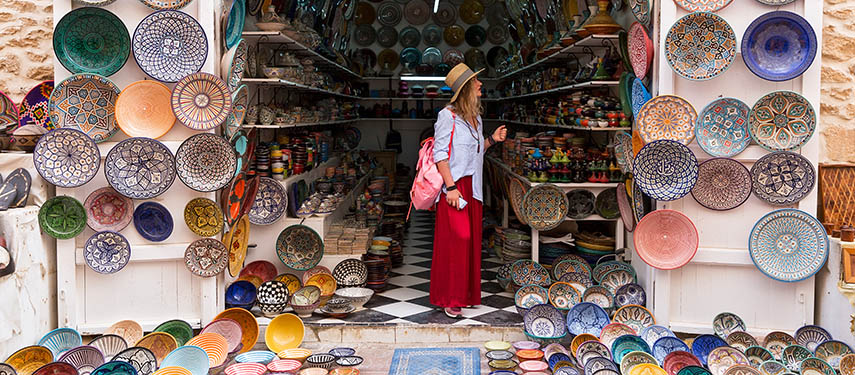
SHOPPING
Moroccan souks are among some of the best in the world, offering everything from spices to leather, carpets to lanterns. You could literally spend days wandering around even if you are not an avid shopper. The sights, the sounds, the smells – they just have to be seen to be believed!
SHOPPING TIPS
- If in doubt, ask your guide.
- Be prepared to bargain, but be sure you really want an item before you begin & start by offering what you believe is a fair price
- Be assertive, but be kind – life’s too short to bargain over a further $2!
- If you see something you like, buy it. You may not find that colour, style, fabric or design again – let alone finding the same store!
- Boutiques may accept credit cards, but few souk vendors will, so be sure to carry cash, including small amounts for swift, inexpensive purchases.
- Leave your valuables such as your passport in the hotel safe.
- Practise your French (or Arabic) as it will serve you well!
CLOTHING
- Light cotton shirts or t-shirts, both short & long sleeved
- Sweater/fleece
- Trousers – a combination of long & 3/4 length (2 to 3 pairs)
- Casual dress or skirt
- Casual evening wear
- A scarf or pashmina
- A good pair of covered walking shoes – Moroccan souks are not the cleanest
- Casual shoes & sandals or flip flops for around your hotel
- Socks & undergarments
- Gloves, beanie & scarf for High Atlas mountains & desert journeys
- Pyjamas
- Swimwear
ACCESSORIES
- Sunglasses
- Sun hat or cap
- Spare prescription glasses
- Contact lenses and saline
- Pen, paper, scrap book
- A novel
- Camera with spare memory cards
- Chargers for all electricals
- Adaptor plugs
- Small torch + batteries to use in the event of a power outage
- A scarf – for ladies to wear when visiting mosques or ancient sites
- Toiletries
- Ear plugs – Morocco can be noisy (as can your travelling companion!)
- A water bottle
- Medical kit
INSURANCE
ENSURE YOU’RE INSURED
Although we hope you’ll never need it, having a comprehensive travel insurance policy is always highly recommended. No international travel is ever entirely without risk, and even the best laid plans can go awry.
Whilst we cannot recommend the right policy for you (as only you know you and what you need), below we have provided links to sites and articles that may help you navigate your way through the choices available.
PLEASE NOTE: The information provided here is subject to change at any time. Please always read the travel insurers’ relevant Product Disclosure Statements and refer to the Australian Government’s Department of Foreign Affairs & Trade’s (DFAT) Smartraveller website for up to date travel advice and their advice on Travel Insurance.
Whichever insurer you choose please provide us with a copy of your chosen policy, insurance certificate and all emergency contact details for our records.
WHAT WE OFFER
The Classic Safari Company is currently associated with the following travel insurance providers :
Each of the above insurers has varying strengths depending on the activities included in the trip you are undertaking. Their websites are easy to navigate and once you have entered your personal details and selected your preferences – be that to reduce your excess, include cover for cruising, increase your cover for cancellation or obtain cover for a pre-existing medical condition – the website will generate a quote. If you are satisfied with what is presented, you simply need to follow the steps to purchase your insurance policy online.
At what point in the booking process should I purchase travel insurance?
It is advisable to obtain comprehensive travel insurance at the time of confirmation/paying a deposit to ensure you are covered from the moment you book.
What should I look for when selecting coverage?
Most insurance companies will cover the basics such lost luggage or flight cancellations, but levels of medical cover vary from policy to policy, and the cover for global issues, such as pandemics, has changed significantly over the past few years. This excellent article, Travel Insurance Simplified, published on 07 April 2022, details what you need to look for when selecting coverage for your next trip. Smartraveller also publishes helpful advice on Travel Insurance.
What is the impact of DFAT travel advice?
Some insurance will not cover travel to countries where the Australian Department of Foreign Affairs & Trade (DFAT) is warning Australians to “Reconsider your need to travel” (Level 3) and most don’t cover travel to places with a “Do not travel” warning (Level 4). Most international travel insurance covers visits to Level 2 countries. DFAT travel advisories can change over time and this may affect your travel insurance coverage. You should always check the advice levels on the Smartraveller website.
How much does travel insurance cost?
Costs will vary depending on your age, destination, duration of your journey, preferred excess, cancellation cover, and if you have any pre-existing medical conditions. It is important to note that the inclusions with each policy are different so price is not the only factor you should consider when choosing travel insurance – cheaper policies often don’t provide the cover you might expect. You should read the small print carefully before purchasing any travel insurance policy to ensure it is suitable for your needs.
Can I use my credit card travel insurance?
Many premium credit cards come with complimentary travel insurance. If you elect to only be covered by your credit card travel insurance it is paramount that you understand the terms and conditions, policy availability subject to your age, trip duration and destination, item limits, sub-limits and exclusions that may apply. It is also worth noting that many credit card travel insurance policies automatically exclude cover for epidemics and pandemics and may not cover charter flights.
What about reciprocal health care agreements?
If you’re travelling to one of the 11 countries for which Australia has reciprocal health care agreements, you may also be able to access free health care at your destination under these arrangements. The exact benefits available to Australians in each partner country vary. At a minimum, you can generally access emergency medical and hospital care in any of these 11 countries by simply showing your valid Australian Medicare card.
Even if you’re travelling to a country that has a reciprocal health care agreement with Australia, it’s still a very good idea to get travel insurance as these care agreements can be quite limited. Travel insurance will also cover you for everything else besides your health, such as delays or cancellations.
HEALTH & VACCINATIONS
VACCINATIONS
It may be necessary to take medical precaution prior to, and whilst travelling. As we are not qualified to offer advice, we recommend you contact your GP or the Travel Doctor-TMVC who have the most up‐to-date information available. Requirements are highly personal depending on your health profile and the activities in your itinerary. Some vaccinations must be given well in advance of travel, so we suggest seeking medical advice as soon as you start to plan your trip. Be sure to ask what vaccinations or medications may be required to enter Morocco and to re-enter Australia.
You can also refer to SmartTraveller for a guide as to what may be required, however you should always seek professional medical advice before travelling.
In Morocco hospitals & pharmacies have well provisioned dispensaries, however it is recommended that you carry any medicines you think you may need (eg. Antihistamine, motion sickness/car sickness tablets).
Please ensure you advise us of any allergies or medical conditions prior to travel.
We also recommend that you have a dental check up prior to leaving home.
STAY HEALTHY ON YOUR TRAVELS
There is no reason to get ill in this part of the world as long as you are sensible. Even if you are used to dining out on the spiciest tagines you can find at home, the cuisine will still be vastly different to what you are accustomed to. Because of the different spices, herbs & the density and composition of water, you may find that there is initially an effect on your stomach. This normally passes within 48 hours as you adjust to the change in diet but if the condition persists you should consult a doctor.
To avoid health problems here are a few basic guidelines:
- Get all the vaccinations your doctor recommends.
- Do not drink the water unless you know it has been purified, boiled or it comes direct from a spring source. In city hotels don’t drink the water from the tap – ask for boiled or bottled water (you may have to purchase bottled water). You may wish to carry some purification tablets with you.
- Do not eat uncooked vegetables or meat, peel all fruit before you eat it, avoid salads and only eat food which has been recently cooked.
- Avoid ice in your drinks (unless the hotel has a water purification system).
- Be very particular about personal hygiene, keeping your hands very clean.
- We do not recommend you eat from street vendors unless you are brave!
- Cover up – use insect repellent, mosquito nets and wear long, loose, light-coloured clothing
- Don’t swim in fresh water unless told it is safe to do so
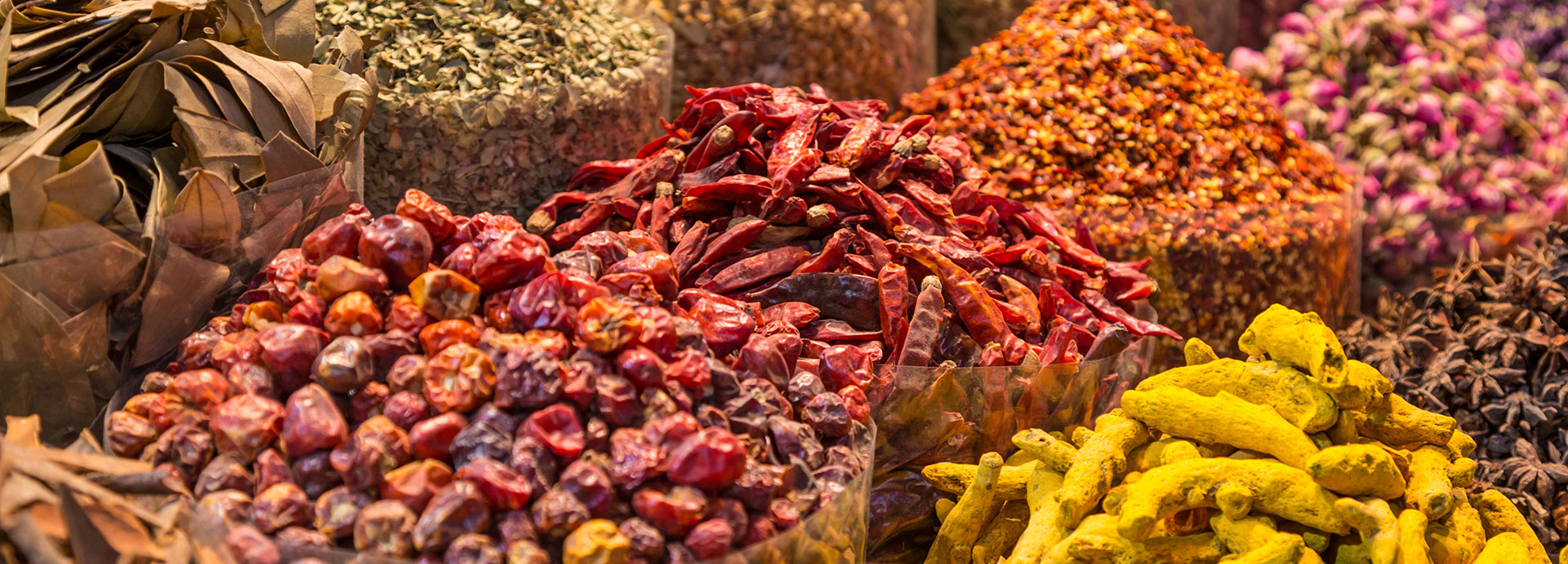
FOOD & DRINK
FOOD & DRINK
Moroccan food is widely regarded as excellent; drawing from Arab, Berber, Jewish, African and French traditions, using a distinctive blend of fresh produce and spices, herbs and nuts there is a large array of unique culinary delights. The staple dish is the tagine – cooked in a conical earthenware pot, this traditional dish boasts an incredible aroma. Popular choices include lamb with dates & chicken with apricots, accompanied by fresh salad & vegetables. There is an abundance of locally grown fresh fruit and vegetables, from dates to oranges, avocadoes and figs, which are used imaginatively with spices, herbs and oils. Fresh Moroccan flat bread is also excellent!
Although Muslims are forbidden to drink alcohol, Morocco is a moderate Islamic country and you are free to drink in moderation in private or where alcohol is served. In the medinas some restaurants serve alcoholic drinks and there are bars and nightclubs in the big cities. Outside medinas alcohol may be obtained in some shops and supermarkets and you may be pleasantly surprised at how good Moroccan wine is. Most riads are happy for you to bring your own if they do not serve alcohol – please enquire first.
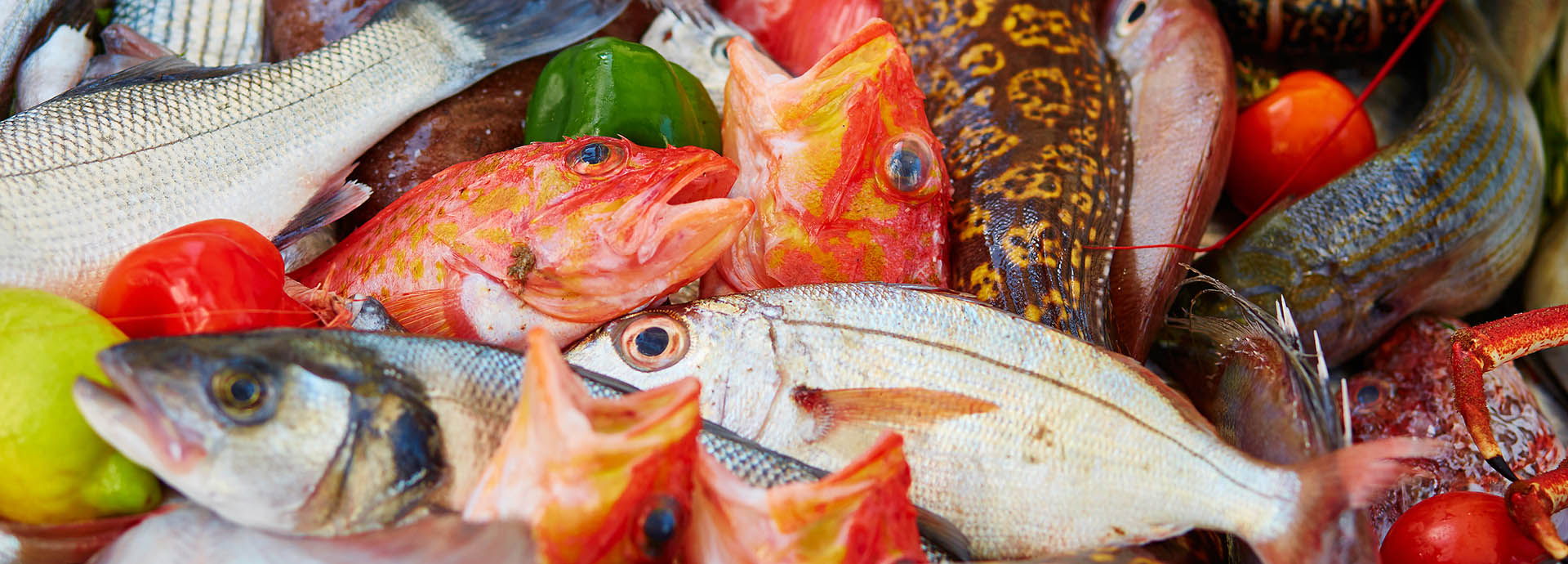
Morocco offers a wide array of delectable food and drink specialties to try. Here’s a list of some must-try items:
FOOD SPECIALITIES
Tagine: Slow-cooked stew named after the clay pot it’s cooked in, often made with meats, vegetables, and aromatic spices.
Couscous: A staple dish made from steamed semolina wheat granules, usually served with vegetables and a flavorful meat or vegetable stew.
Pastilla (B’stilla): A savory-sweet pie typically filled with shredded chicken, almonds, and spices, wrapped in thin pastry layers.
Harira: A hearty soup made from tomatoes, lentils, chickpeas, and a blend of spices, traditionally eaten during Ramadan.
Mechoui: Spit-roasted whole lamb, seasoned with spices and herbs, resulting in tender and flavorful meat.
Kefta: Minced meat (usually beef or lamb) mixed with spices, herbs, and onions, often shaped into small meatballs or patties and grilled or stewed.
Tanjiya: A Marrakech specialty, tanjiya is a slow-cooked stew, usually made with beef, preserved lemon, and spices, cooked in a conical clay pot.
Sardines Chermoula: Grilled sardines marinated in chermoula sauce, a mixture of herbs, spices, and lemon.
Zaalouk: A flavorful eggplant and tomato dip cooked with olive oil and a blend of spices.
Msemen: Moroccan pancakes made from a dough that’s folded and layered, then pan-fried until crispy on the outside and soft on the inside.
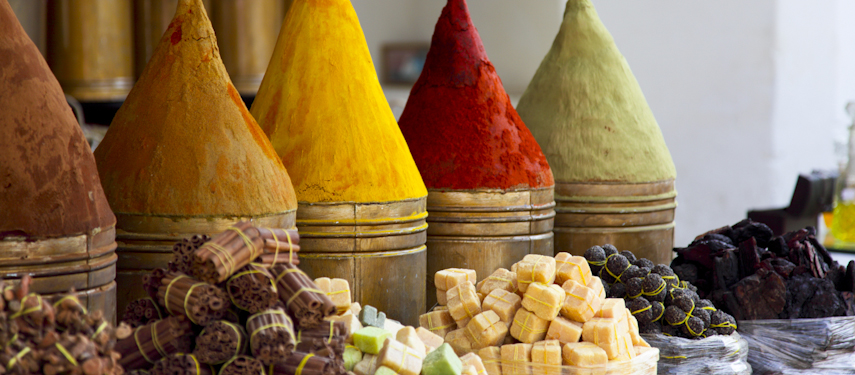
DESSERTS & SWEETS
Baklava: Layers of filo pastry filled with chopped nuts and sweetened with honey or syrup.
Ghriba: Traditional Moroccan cookies, often made with almonds or sesame seeds and flavored with various spices.
Chebakia: Deep-fried, sesame-coated cookies that are twisted into intricate shapes and soaked in honey.
Sellou: Also known as “Zafrani,” this sweet treat is made from toasted sesame seeds, almonds, and spices, often enjoyed during special occasions.
DRINKS
Moroccan Mint Tea (Atai): A sweet and refreshing green tea infused with fresh mint leaves and plenty of sugar.
Coffee: Moroccan coffee is often brewed strong and served with sugar.
Amlou: A nutty dip made from almonds, honey, and argan oil, often enjoyed with bread.
Fruit Juices: Try fresh orange, pomegranate, and other fruit juices available in markets and cafes.
Spiced Coffee (Café des Épices): A traditional spiced coffee blend that includes ingredients like cinnamon, ginger, and cardamom.
Rose Water Lemonade: A refreshing drink made from freshly squeezed lemons and rose water.
Exploring these delightful Moroccan specialties will undoubtedly give you a taste of the country’s rich culinary heritage and diverse flavours.
AIRPORTS & TRAVEL
TRAVEL BY AIR
In Morocco’s International and Domestic Airports you will pass through security check after security check when you are departing the country, but it is all in effort to maintain your safety, so take a deep breath and go with the (slow) flow.
On arrival into Morocco immigration can be a little slow and baggage claim even slower. If arriving into Casablanca there are money change facilities at the bottom of the escalator / stairs after immigration, so if immigration has been quick you can change money here while you wait for your luggage.
On claiming your luggage and clearing Customs you will meet our local representative in the Arrivals Hall. They will be holding a placard with your name on it. Or if you are arriving on a domestic flight you will meet your local representative outside the baggage claim area. If you do not immediately see them do not panic. Do another lap of all the placards and then stand still as the crowds will thin and you will soon be united with your driver.
Air networks are not extensive in Morocco and it is often faster to drive between destinations than fly. The national carrier, that operates both international and domestic flights, is Royal Air Maroc (commonly referred to as RAM), owned by the Moroccan Government. Most flights use Casablanca as a ‘hub’ to fly in and out of, so if you do book internal flights you are likely to find that you will fly through Casablanca on numerous occasions.
When checking in for domestic or international flights please note that after checking in your luggage you will proceed to immigration via two queues – one for women and one for men. Just before you enter the departure lounge you will go through another security check where your hand luggage passes through an x-ray machine. Please keep your boarding pass on you at all times as it may be stamped as you pass through the security detectors.
DOMESTIC BAGGAGE ALLOWANCE
Baggage allowance for domestic flights in Morocco is:
Economy Class
23kg checked in + 7kg cabin baggage
Business Class
2 x 23kg checked in + 7kg cabin
1 piece of excess baggage is (from) MAD550 up to 23kg (approximately A$75)
A 2nd piece of excess baggage Is (from) MAD1,500 up to 23kgs (approximately A$210)
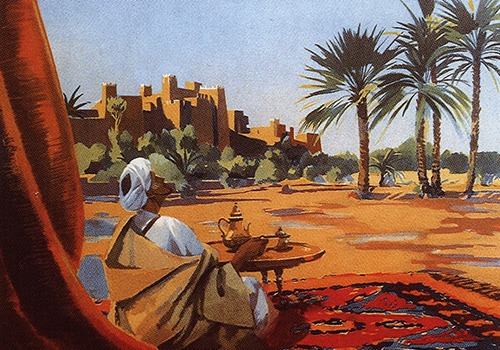
TRAVEL BY ROAD
Using a private car and driver is one of the best ways to see Morocco. It gives your itinerary great flexibility and having a driver on stand-by allows you to go where you want, when you want, without having to deal with the compulsory haggling over the price of a taxi or camel! Most of the time your car is likely to be a Mercedes Viano. These cars are well maintained, clean and air-conditioned.
The highway infrastructure in Morocco is impressive. The toll roads are well maintained and are definitely the fastest way to get from A to B, even if they are somewhat unexciting. Once you get onto rural roads, however, road travel can be pretty hair-raising! Most have no central markings and there are no restrictions on vehicle types, pedestrians, livestock, donkeys, camels or any other form of transportation. However, it is the best way to get around and we supply excellent drivers who are used to these unique conditions. On long drives your driver will know where to stop for quality meals and amenities breaks. It is a good idea to take toilet paper with you as the amenities will often not have any. Bottled water can also be restocked at these points.
When travelling as part of a group a coach or mini-coach will be organised to suit the group size. The coaches will be of the highest quality available, however, they do not bear comparison to western coaches. In some cases two smaller vehicles may be used pending the roads to be navigated.

MONEY MATTERS
CURRENCY AND EXCHANGE
The unit of currency in Morocco is the Moroccan Dirham (MAD), which is divided into 100 centimes. There are 20, 50, 100 & 200 DH notes and 1, 2, 5 and 10 DH coins. Australian dollars are not accepted in Morocco, however both US dollars and Euro can be exchanged for Moroccan Dirham. Money can be exchanged at banks, at a Bureau de Change and often in larger hotels.
It’s best to take a mixture of money – credit card, debit card or travel cash card, plus cash just in case. Small denominations of USD or EURO are advisable – especially for tipping. If all else fails, have someone you can depend on who will make an emergency transfer of funds.
ATM machines are widely available in the larger cities and in airports, however do not rely soley on a cash card to fund your trip – if it does not work for any reason you will need to find a bank which is not always convenient. Please be vigilant if you do withdraw cash.
Note: the ATMs around Djemma el Fna Square in Marrakech get a serious workout and have been known to run out of cash, so when heading to the souk it is a good idea to stop en route at a less-frequented ATM if you need cash.
Larger hotels, quality riads, souvenir shops (not souks & bazaars) and restaurants in the major towns and cities accept most credit cards. However do not rely on credit cards as your principal source of finance. Visa and Mastercard are the most commonly accepted. AMEX is not so popular and in some instances is not accepted at all. Please note that you need to take your physical credit card, and you need to know your PIN number, as not all places will allow you to ‘tap’. In some cases you may also be asked to sign.
It is recommended that you DO NOT change money on the black market as you are more likely to receive a lower rate of exchange or fake notes.
TELL YOUR BANK
We highly recommend you advise your bank of your destinations and travel dates. This should prevent any of your transactions being deemed as ‘out of the ordinary’ (and possibly stopped) due to their unexpected location.
TIPPING
Tipping is an ingrained part of tourism in Morocco. Drivers, guides and hotel staff rely on tips and so it is likely that you will feel like you are constantly tipping.
Try to keep your wallet stocked with 10 and 20 MAD (dirhams) – which is the equivalent to about 1-2 Euros.
Use the following as a guide:
- Restaurants – it is customary to tip 10% of the bill amount
- Drivers – either tip daily or at the end of your trip if you have the same car & driver for a number of days. On a daily basis tip approx. €5-10 per traveller
- Tour guides – MAD100/€10 per person for a half day sightseeing tour & double for a full day
- Local representatives – there is no need to tip local representatives who meets you at the airport
- Porters/hotel staff – MAD10 per suitcase/backpack bag.
Always carry extra money for those unexpected tips, for drivers, guides or staff that deserve that bit extra.
SPENDING MONEY
Your itinerary and invoice will indicate inclusions and exclusions throughout your itinerary booked by The Classic Safari Company.
As a rule most hotels throughout Morocco are offered on a ‘bed and breakfast’ basis only – allowing you the freedom to dine out if you wish. All additional meals, snacks and drinks will need to be paid for on your own account.
It is difficult to calculate exactly how much each person will spend. However, as a rough guideline, we suggest you budget around €50-70 per person per day for extras such as additional meals, tips, drinks and personal purchases.
Of course if you plan to shop ’til you drop – and there is a lot of great shopping in Morocco – then budget accordingly!
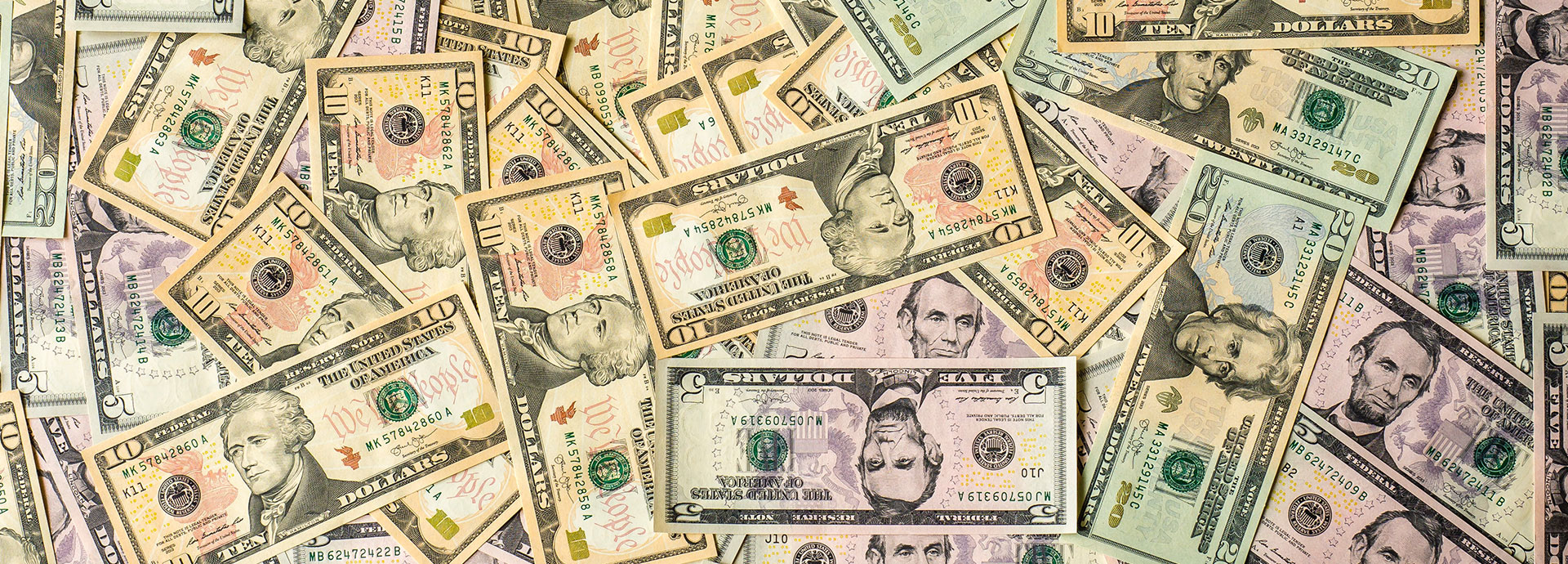
POWER, TECH & PHOTOGRAPHY
POWER
There are basically two main voltage systems used around the world: 110 Volt ‐ USA, Canada, Spain & Japan 220 Volt ‐ the rest of the world. In simple terms, the power supply available at the socket is roughly twice as powerful in 240V countries as in 110V countries.
The voltage in Morocco is 220 Volts, therefore if you wish to use any electronic devices from Canada, the US or Japan you’ll need a voltage converter AND a plug adapter. Australia operates a 220V currency and therefore you only require an adapter for Australian appliances.
There are two different types of electrical sockets commonly found in Morocco, types C and E. Older sockets are two-pin, just like European plugs (Type C), whilst the newer hotels have a grounded version of the two-pin socket in which an earth pin sticks out from the socket, so you may need an adaptor that has a hole to accept the earth pin (Type E). If you do not already have any adaptor we recommend purchasing a multi-purpose travel adaptor, which will fit both.
Many adaptors also have a USB port so you can plug your smart phone, or I‐product directly into the adaptor.
For the latest & most up to date information about voltage and what adaptors to travel with refer to: www.korjo.com
ADAPTORS
Morocco uses a 220V electrical current and a type C or E socket (European 2 round pin)

SMART PHONES & DATA
Smart phones can be wonderful travel companions. Not only will they help you stay in touch with friends and family, they’ll guide you through unfamiliar cities, enlighten you on local attractions, translate foreign languages and produce great photographs.
Left unchecked they can also wreak havoc with your travel budget!
The reason is that some (but not all) of the fun and useful functions smart phones perform require the downloading of data via an internet connection. Unfortunately, if you’re paying for data roaming it can be an expensive exercise and you run the risk of returning home to an expensive shock.
If you want to make the most of your mobile device, while avoiding unexpected and unpleasant charges, keep in mind the following tips:
- Buy an International Roaming Pack ‐ think about buying a pack from your phone network before departure in order to access cheaper rates
- Remove your regular SIM and replace it with a pre‐paid SIM either purchased before departure or upon arrival. Not only will you benefit from better prices for data, voice calls and SMS, but there will be a pre‐set limit on how much you can spend giving you some piece of mind.
- Turn off global roaming ‐ the problem with data roaming is not simply the exorbitant costs travellers are charged for downloading megabytes, it’s the fact that this data is often being sucked down without you even being aware of it.
To be safe, the easiest thing to do is simply disable data roaming.
We do NOT recommend taking advantage of free-wifi in public places such as airports and malls. The connection is often insecure, and you could run the risk of data & information theft. If you do need to go online, whether to check your emails, use a handy app or make an online booking – your best option is to find SECURE free or affordable Wi‐Fi.
PHOTOGRAPHY
Photography plays an important role in any holiday. Zoom lenses are a great asset as are wide-angle lenses for landscape shots. The best over-all lens to take would be a zoom in the 70mm-300mm range. Only if you are a keen birder, would you need a lens greater than 300mm. For digital cameras it is suggested that you bring two rechargeable batteries and ensure that you have adequate memory space.
Please respect local customs and feelings when taking photos. You may need to tip locals in order to take photos. It is forbidden to photograph certain places such as airports, dams, bridges, government buildings & military installations in many countries. If in doubt, ask!
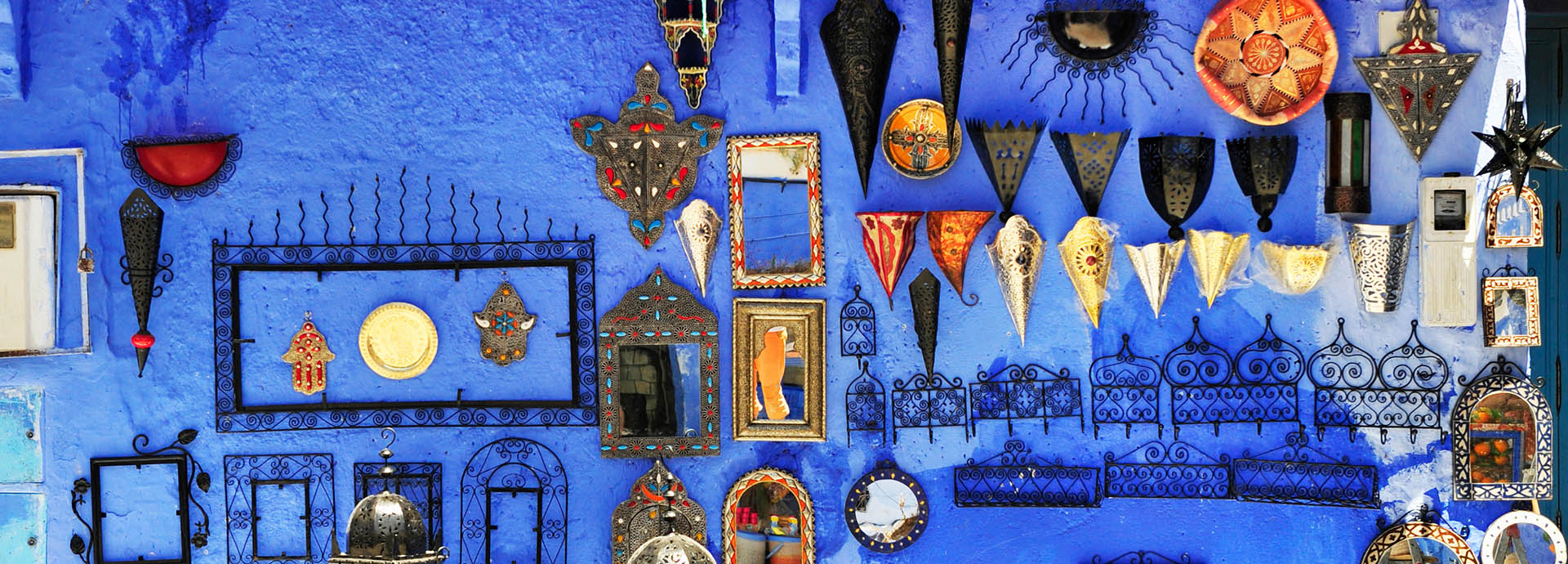
RECOMMENDED READING LIST
A House in Fez – Susannah Clarke
The Caliph’s House: A Year in Casablanca – Tahir Shah
Dreams of Trespass – Fatimah Mernissi
The Lords of the Atlas – Gavin Maxwell
The Last Storytellers – Richard Hamilton
Travellers History of India – Stephen G Haw
In Morocco – Edith Wharton
A Year in Marrakesh – Peter Mayne
The Tangier Diaries – John Hopkins
Sacred Son – Laila Lahlimi
Culture Shock – Orin Hargraves.
Culture & Customs in Morocco – Raphael Njoku
The Voices of Marrakesh – Elias Canetti
Cinnamon City – Miranda Innes
The Moon over Tangier – Janice Law
The Tattooed Map – Barbara Hodgson
The Spiders House, The Sheltering Sky or Let It Come Down – Paul Bowles
Morocco, Maybe – Alex Wu
The Moroccan Daughter – Deborah Rodriguez
Their Heads are Green & Their Hands are Blue – Paul Bowles
Berber Odes: Poetry from the Mountains of Morocco – Michael Peyron
Hope and Other Dangerous Pursuits – Laila Lalami
King of the Wind: The Story of the Godolphin Arabian – Marguerite Henry
A Handful of Honey – Annie Hawes
The Tenth Gift – Jane Johnson
Send a Fax to the Kasbah – Dorothy Dunnett
Lulu in Marrakech – Diane Johnson
In Arabian Nights: A Caravan of Moroccan Dreams – Tahir Shah
Valley of the Kasbahs – Jeffrey Taylor
Morocco The Travellers Companion – Margaret Bidwell & Robin Bidwell
The Storyteller of Marrakesh – Joydeep Roy-Bhattacharya
Year of the Elephant: A Moroccan Woman’s Journey – Leila Abouzeid
